
•

Principle Eulogy by Michael Brown, a nephew from Canberra
Helen Harrison was born on 16 December 1925 at the Coolinda Private Hospital in Harrison Street, Neutral Bay, a suburb of Sydney.
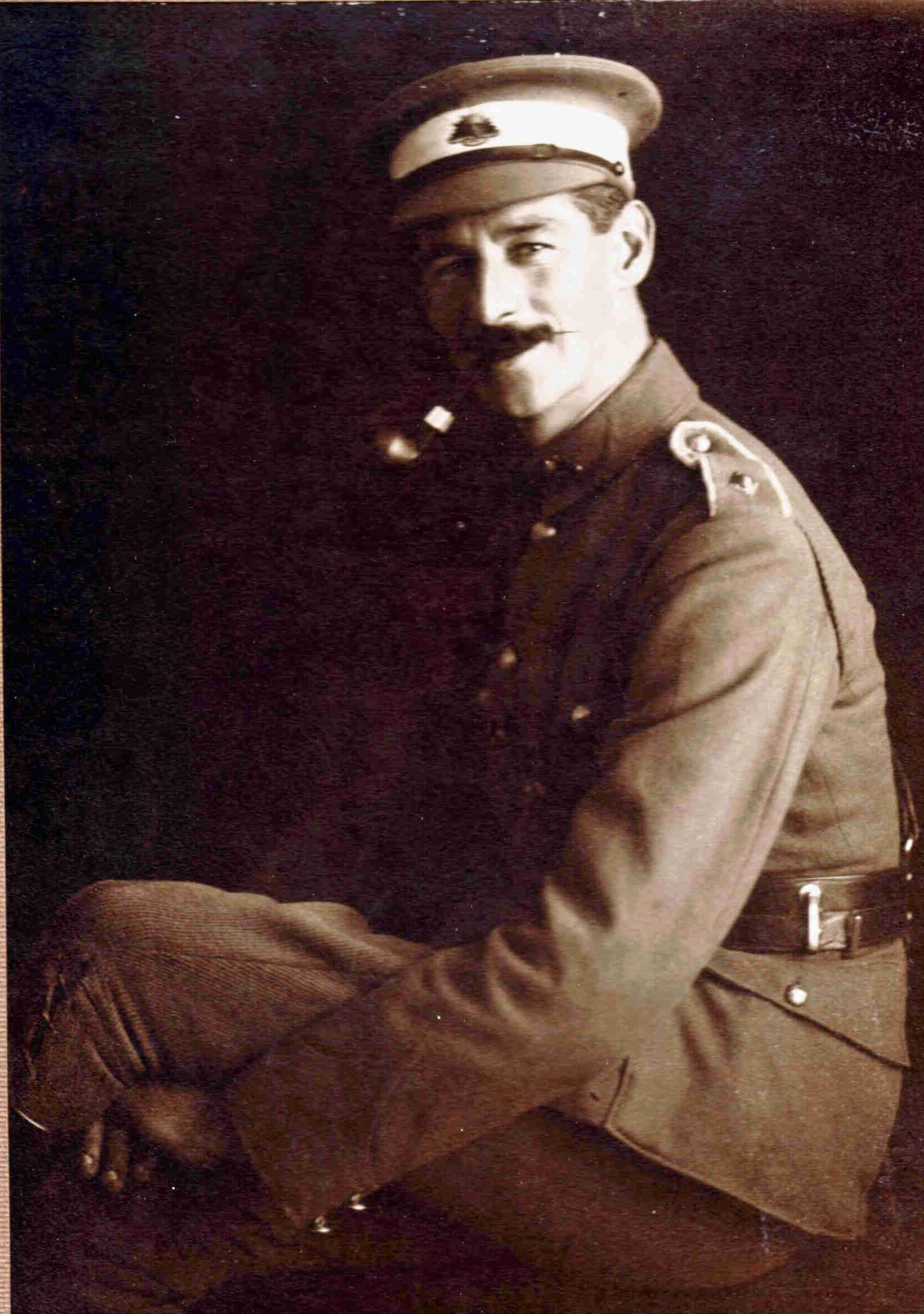 Her
father, George Harrison, was a surveyor, raised on a dairy farm at Rock Hill
near Lismore. He was educated at Fort Street Boys High School in Sydney and
served in the Australian Army at Gallipoli and later in Palestine, ostensibly in
the 12th Light Horse, but actually demolishing railway lines and
bridges and building new ones, with road construction a priority and essential
for most military advances in the region. He was awarded a Military Cross in
1918.
Her
father, George Harrison, was a surveyor, raised on a dairy farm at Rock Hill
near Lismore. He was educated at Fort Street Boys High School in Sydney and
served in the Australian Army at Gallipoli and later in Palestine, ostensibly in
the 12th Light Horse, but actually demolishing railway lines and
bridges and building new ones, with road construction a priority and essential
for most military advances in the region. He was awarded a Military Cross in
1918.
After the war, he married the girl next door—Beatrix (Trixie) Maud Hopkins. The Hopkins lived in ‘Beaumaris’, in Raymond Rd, Neutral Bay. Trixie’s father, William Hopkins, imported and exported woollen cloth and was an agent for many Australian woollen mills, with a branch office in New Zealand. The family was very comfortable for those times, with live-in staff and a superb view of Sydney harbour. A usual way of diverting Helen and her elder sister Beatrice (my mother)—when they were young children—was to take them on the ferry at Neutral Bay and do the round trip back to Neutral Bay in the care of a lady named Mamie.
Though Helen started preschool at Neutral Bay Primary, she did grade one at Primary School on Lord Howe Island where she moved with her mother and sister because the cost of living was less than in Sydney. There were about 30 children in the school, all in one room, with Grade 1 in the first row all the way back to Grade 8 at the back of the room and, I am told that discipline at the school was kept with a large wide strap (a memory that is still vivid seventy-odd years later!). At that time, Helen’s father was a government surveyor in New Guinea and only came home on leave for three months every three years and Helen, with her mother and sister, lived at Pinetrees, a Boarding House that is still popular today.
It was during this period also that Helen, along with other island children, had her tonsils removed when a visiting ship with a doctor arrived. She was transported to and from Government House (hospital for the day) on a horse-drawn sleigh and given homemade ice cream—a cause of much envy!
The family returned to Sydney after 18 months and her father took her to Lindfield Primary School to enrol her. She was tall for her age and her father inadvertently enrolled her in the middle of Grade 2 instead of Grade 1. Helen said her first few months were hard but she managed by copying from the other children until she caught up. On Lord Howe Island, they had to rely on themselves and their classmates to learn. With eight grades in one class, this wasn’t a novel experience for her.
Because her family moved around quite a bit while Helen was growing up, she experienced a variety of schooling—Neutral Bay, Lord Howe Island on two occasions, Tweed Heads, Lindfield, Leura, boarding school at Manly Grammar and finally, Presbyterian Ladies College at Pymble.
When she was 12, Helen won a scholarship to PLC. This ended at the Intermediate Certificate when she was 15, and as the family could not afford the final two years there, she had to leave and was employed by the Bank of NSW. She studied accounting at Business College at night and also completed her Leaving Certificate as an external student - no easy feat. She then worked for a chartered accountant and finished her accounting studies, becoming a member of the Australian Society of Accountants.
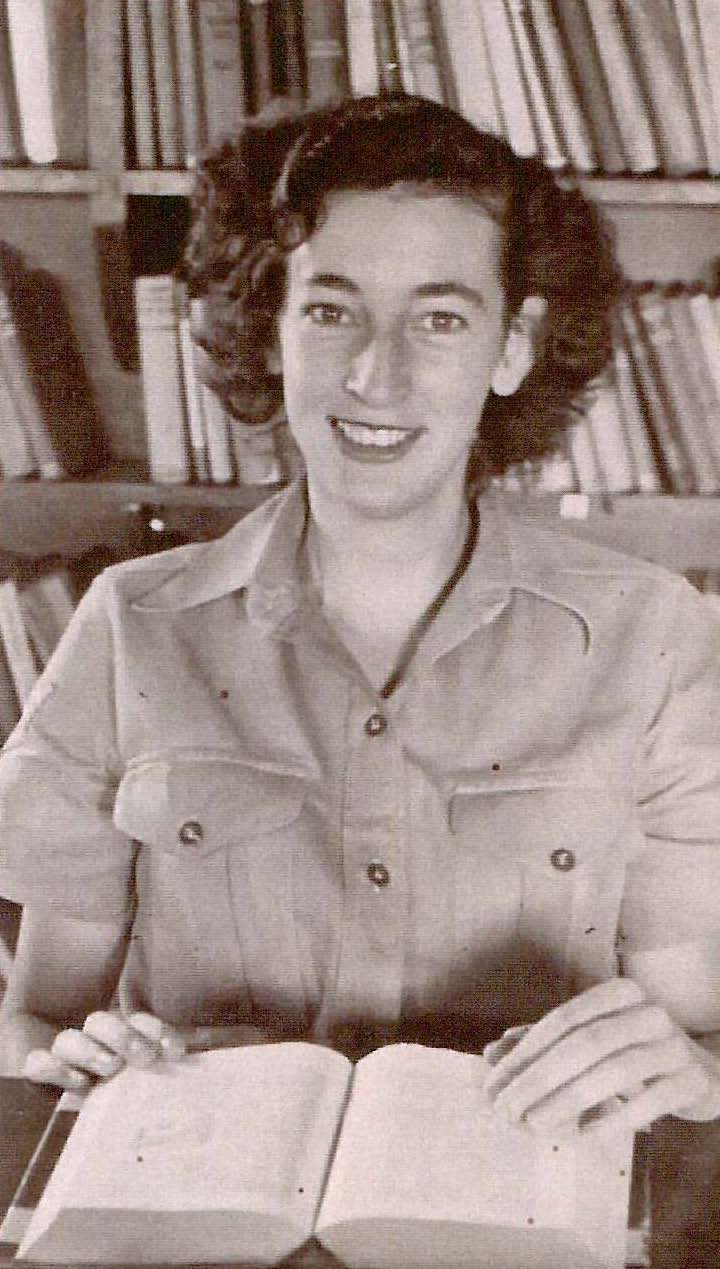 Helen
was 14 when the Second World War started but didn’t join the Air Force until she
was 18 and had lost her cousin, Peter Fraser, a bomber pilot, over Germany. She
worked as a stores clerk, then in an education unit as a Sergeant. At one stage,
she had to assume the role of a Drill Sergeant. When asked how she could
possibly have lasted in that role, when she couldn’t tell right from left, she
said the platoon always knew which way to turn and took no notice of her anyway.
She also managed to hitch rides all round Australia in different aircraft from
Sunderlands to Mosquitos. She showed considerable initiative in this, I believe,
carrying a large briefcase and following close behind a senior officer.
Helen
was 14 when the Second World War started but didn’t join the Air Force until she
was 18 and had lost her cousin, Peter Fraser, a bomber pilot, over Germany. She
worked as a stores clerk, then in an education unit as a Sergeant. At one stage,
she had to assume the role of a Drill Sergeant. When asked how she could
possibly have lasted in that role, when she couldn’t tell right from left, she
said the platoon always knew which way to turn and took no notice of her anyway.
She also managed to hitch rides all round Australia in different aircraft from
Sunderlands to Mosquitos. She showed considerable initiative in this, I believe,
carrying a large briefcase and following close behind a senior officer.
Helen was actually a student attending Brisbane Boys Grammar after the war. The Education Department ran classes during the Christmas holidays to get ex-service men and women who wanted to start tertiary studies up to speed. She enrolled at the University of Queensland in Agricultural Science and topped her first year but dropped the course to do commerce. She had met and become engaged to another first year Ag student, Norman Fox, during the year and she felt that one agricultural scientist in the family would be quite enough!
Their first home was an unlined wooden garage at Gatton College that they built themselves and shared with a couple of cats that could (or would) not be permanently evicted and, eventually, with their first child, Peter.
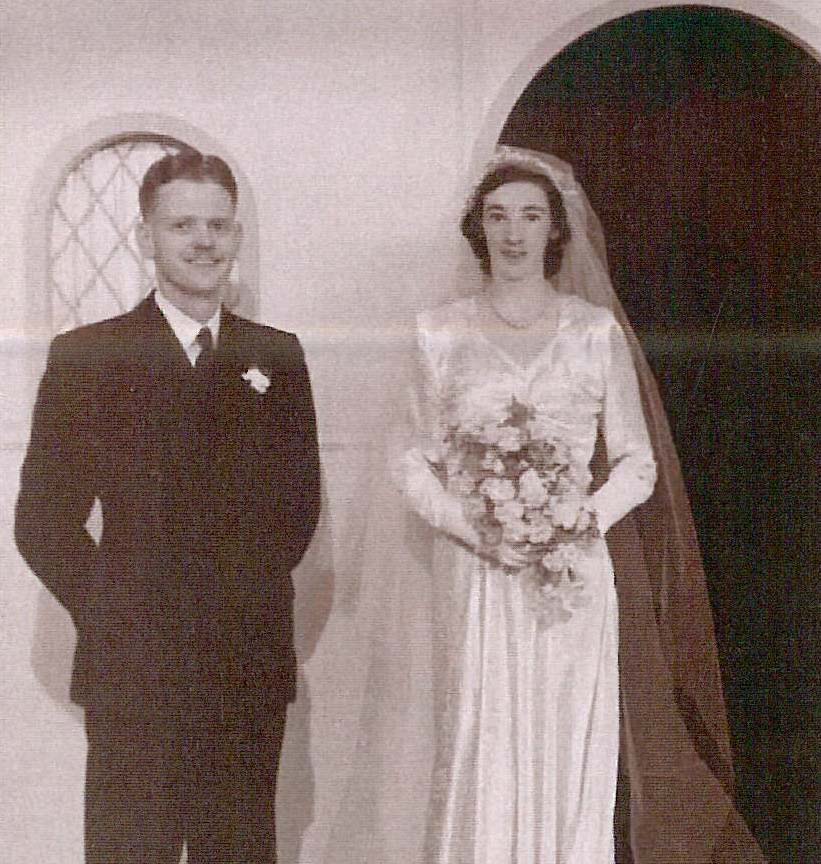 About
1952, the garage was demolished and the material used to build their first real
home at Oxley. Norman’s army mates would come on weekends to assist with an
extra room or veranda as required. They moved to Gayndah at the end of 1954,
where Norman had a job as an extension officer, having previously helped
establish Brian Pastures Research Station east of Gayndah. Like everyone else at
that time, Helen raised three children without running hot water or an indoor
septic toilet. A wood stove provided the cooking and heating for the house.
There was no car for the first year and no telephone until about 1960.
About
1952, the garage was demolished and the material used to build their first real
home at Oxley. Norman’s army mates would come on weekends to assist with an
extra room or veranda as required. They moved to Gayndah at the end of 1954,
where Norman had a job as an extension officer, having previously helped
establish Brian Pastures Research Station east of Gayndah. Like everyone else at
that time, Helen raised three children without running hot water or an indoor
septic toilet. A wood stove provided the cooking and heating for the house.
There was no car for the first year and no telephone until about 1960.
Gayndah had its trials. Helen applied for a loan, describing her husband’s occupation correctly as an Agrostologist. The bank manager’s manner became more and more intransigent as the interview progressed and he finally advised that he could not lend to someone with the uncertainty of income that would accompany making a living from giving advice based on reading the stars!
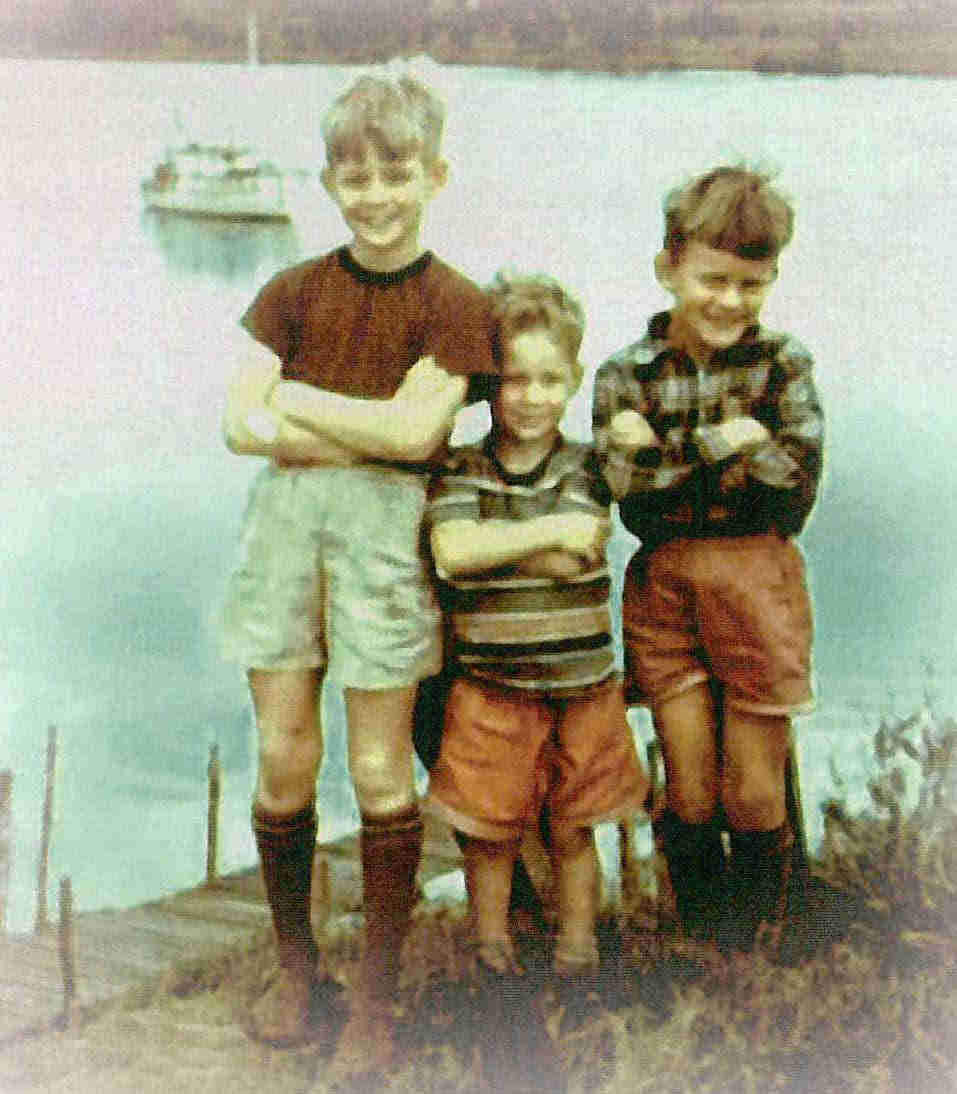 Five
years in Gayndah was followed by five years in Bundaberg. The family had made
lifelong friends in Gayndah but enjoyed their time in Bundaberg more, because of
its milder climate and the opportunities for three growing boys.
Five
years in Gayndah was followed by five years in Bundaberg. The family had made
lifelong friends in Gayndah but enjoyed their time in Bundaberg more, because of
its milder climate and the opportunities for three growing boys.
Norman was then promoted to the Department of Primary Industries in Brisbane, first as a Director of Agriculture, then eventually as Deputy Director General of the Department.
Helen worked for many years as a company accountant in Brisbane for L F Berwick and Co, distributors for Rank Xerox photocopiers. In 1980, Norman retired from the Department of Primary Industries and he and Helen spent most of the next twelve years on a grazing property near Goondiwindi that they had bought five years earlier as a retirement project. Helen described those years as the happiest of her married life and together, they participated in and enjoyed many community activities including the Wyaga Sports and the Goondiwindi Show Society. Again, they made many new friends which they kept in their retirement years in Toowoomba.
Helen was a person who enjoyed life and made the most of every moment of her allotted span. She enjoyed people and was sensitive and attentive to their needs and interests. She gave generously of her love and time to looking after her mother and husband when they so greatly needed her support. Above all else, her family was her great interest, both her close family—her sons, Peter, George and Norman and their families—and her wider family, especially the McClymont and Rathie families.
Latterly, she spent a large amount of time researching the Harrison family history, most of which she was able to finish. This required travel in Britain and much work in Australia. One spin-off of this was a recent Harrison family weekend at Rock Valley, near Lismore, where the cousins got to know one another again and walk the country where the family had lived so long ago.
Helen was also a keen birdwatcher and liked to get away from it all into the country, whether at O’Reilly’s in the mountains, the Snowy country or Marrett.
Her Canberra family of sister, niece and nephews and their families thought she was the ideal aunt: great sense of humour, fun to be with and interested in them all.
She faced her final illness with courage, dignity and quiet acceptance - an attitude that was entirely typical of the woman we all knew and loved.
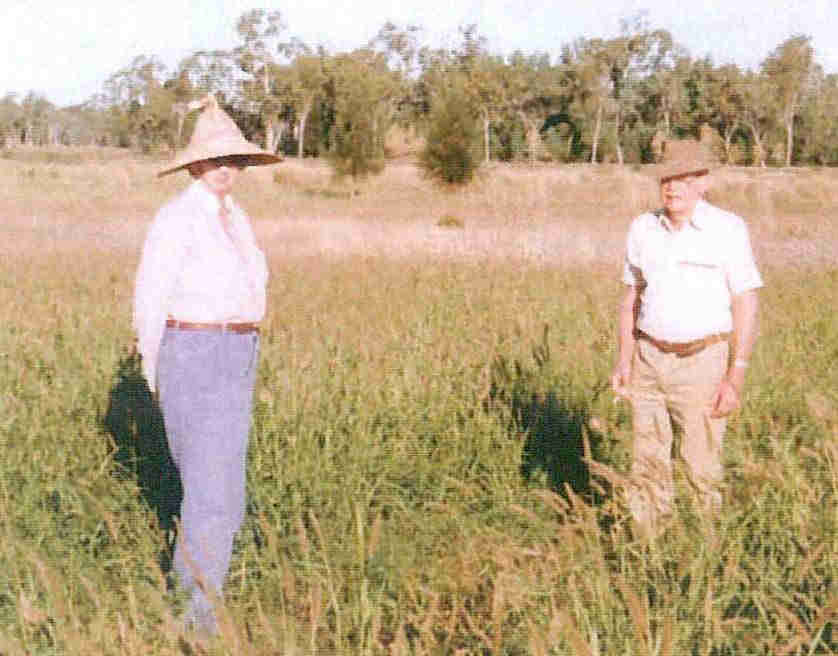
To View other Eulogies select the link below....
Second Eulogy by Penny Fox, Brisbane, Eldest Grandchild